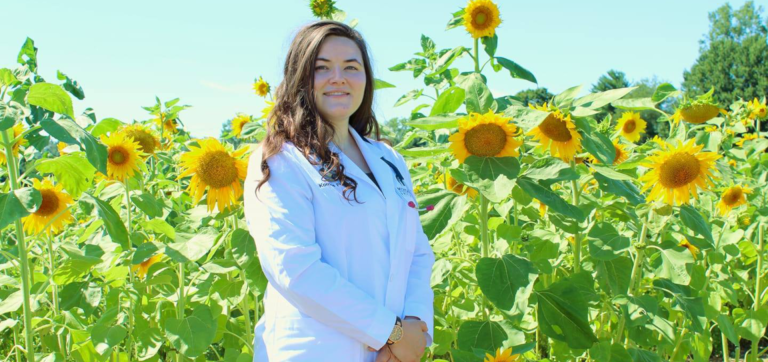
Since its genesis in 2012, the Physician Scribe Program at Kettering University has catapulted countless careers in medicine and patient care.
Students who participate in the Scribe Program benefit from a hybrid learning model that combines academic courses about anatomy, physiology, HIPAA and more with enriching hands-on experiences outside the classroom.
Kettering graduates fondly recall the scribe co-op as a dynamic environment that provides students with diverse experiences. “As an intensive in-person job, it requires work in many different medical settings,” says Korrine Finkbeiner, a 2014 graduate. Though intensive, Finkbeiner lauded the program for its flexibility and for giving students the opportunity to work in different rotations while gaining exposure to different facets of patient care.
“What’s unique about the program,” she says, “is that you’re able to learn about patient care, medicine and healthcare IT, and more importantly, about improving health care through medical records.”
Finkbeiner arrived at Kettering in 2009 as a chemical engineering student. She was interested in math and science and believed in the importance of “investing yourself in research and academia.” That all changed, though, when Finkbeiner’s grandfather passed. It was a seminal moment in her life which caused her to reevaluate her choices.
“I realized that working in research was not giving me the interaction I wanted or needed,” she said. “I think Dr. Stacy Seeley suggested the scribe position when I explained my dilemma to her at a meeting and my grades came up. I wasn't doing my best because I wasn't connecting the material with something that I was passionate about.”
Motivated by the appreciation she had of the EMS technicians who tried to help her late grandfather, Finkbeiner decided to enter the scribe program to get hands-on experience in the medical field. She knew she made the right decision immediately.
“I loved how team-oriented medicine is, how everyone was so honest and humble,” she said. “And I loved being a part of making a difference in someone’s life. I loved that learning is a life-long process in medicine and that there were so many access points to getting started in the medical field.”
In 2012, Finkbeiner became a medical scribe at Hurley Medical Center in Flint. During her time there, professors and doctors encouraged her to pursue more clinical experience and gain exposure in patient care. Seamlessly rotating through a variety of roles, she worked as an emergency medical technician, paramedic, application analyst and scribe supervisor.
Through her journey, Finkbeiner was able to connect all of her co-op experiences in patient care to her academic studies at Kettering. This led to her pursuing a Doctorate of Medicine at Michigan State University’s College of Human Medicine in East Lansing.
When asked what advice she has for incoming students at Kettering, Finkbeiner replied, “Don’t be afraid to try and experience different avenues as you look at medicine or any field. In the least, DO SOMETHING. This will give you the confidence in academics and the confidence in yourself.”
Students or cooperative education employers interested in the scribe program can contact Dr. Seeley, Professor of Chemistry and Biochemisty, at sseeley@kettering.edu and Sarah Perkins Lead Cooperative Education Manager at sperkins@kettering.edu.